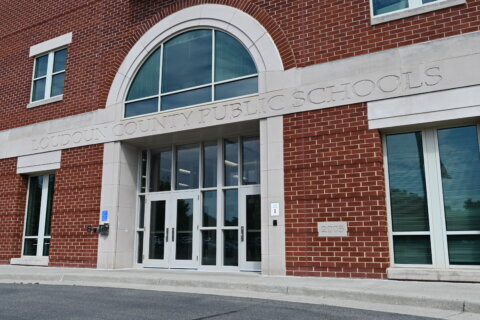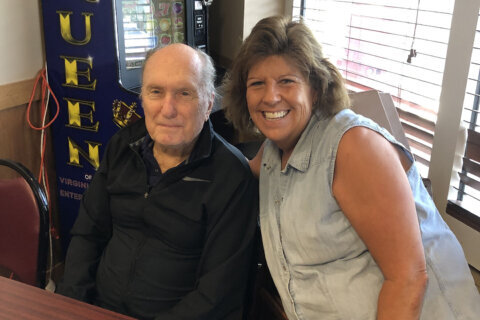One year after voting to formally apologize to the Black community for operating segregated schools decades ago, the Loudoun County Board of Supervisors agreed to set in motion a plan to repair the injustices they believe the community suffered.
Algonkian District Supervisor Juli Briskman, who sponsored the measure, said the idea is to study the harm caused to the Black community by the county’s past discriminatory policies against Black students.
“I said in September of 2020, when we signed that joint letter of apology, words are fine — but really they’re not enough. I believed then, and I believe now, that we can do something else and do better,” Briskman said late Tuesday night at a Board of Supervisors meeting.
Briskman is proposing that Loudoun County’s Joint Board of Supervisors and School Board Committee (Joint Committee) establish an ad hoc type commission that will include stakeholders like Douglass Elementary and High School alumni, the Edwin Washington Project and possibly the NAACP.
“I think that we need information from outside of our boards to help tell the stories,” she said.
“The efforts to undermine the education of students of color were intentional and deliberate. Residual impact of racist policies like school segregation and massive resistance created deep and lasting disparities in the Black community and potentially inhibited the ability of Black Loudouners to achieve the same degree of academic economic and social success as their white counterparts,” Briskman said.
She said she wants the Joint Committee to honestly and critically examine ways to rectify the disparities.
Board of Supervisors Chair Phyllis Randall submitted her own motion. She’d like the Joint Committee to discuss a land purchase by the county from the County Wide League. In the transaction, the group — Black teachers and parents promoting education, was allegedly forced to sell a piece of land it paid $4,000 for to Loudoun County for $1 in exchange for the promise to build a school.
The chairwoman initially offered to add her query to Briskman’s motion, unless a supervisor requested to make it a separate motion, which Caleb Kershner did.
Randall said she wanted recommendations from the Joint Board to address the “injustice” County Wide suffered.
Briskman’s motion passed 6-3 with Supervisors Kershner, Matthew Letourneau and Tony Buffington opposing. They criticized the measure for being too vague and open-ended.
“I’ve struggled with understanding what exactly happens and what the goal is, and then what outcomes could come from the discussion,” Letourneau said.
“I’m also concerned as to where this is leading,” Kershner said. “It alludes to the fact that we’re looking at some level of reparations. And it’s kind of an open book, reparations.”
Randall’s motion passed 9-0.
Background documentation showed some of Loudoun’s history. According to a Board of Supervisors memo, the board voted to stop funding for public schools, “if the federal government forced integration.”
Funding was also delayed for improvements to an elementary and high school by the Board and school board by pressuring continued attendance on a segregated basis by “parents of colored children.”
The board also voted unanimously to support the governor’s plan to close any school facing a federal desegregation order.
In addition, the board pointed out that Loudoun County was involved in several court battles related to segregated schools. Specifically, in 1963, a federal court ordered the county to comply with the 1954 Brown v. Board of Education decision and approve all applications for Black children to attend all-white schools.
“It’s clearly time for this racial reckoning that’s felt across the nation in recognizing that we need to recognize it locally. These steps are needed to tell our true story in Virginia and in Loudoun and to address these past wrongs. It’s a moral imperative,” Briskman said.








